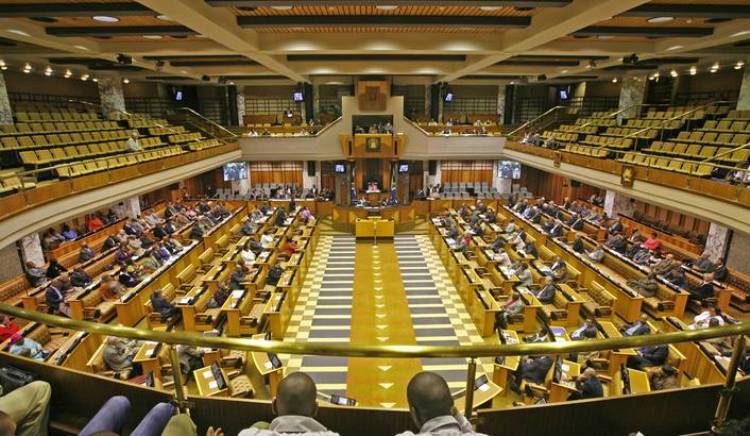R100 Billion Transformation Fund to Accelerate Inclusive Business Growth
The fund is part of the government's broader strategy to dismantle historic barriers to market participation and support inclusive economic growth.

- Country:
- South Africa
In a major push to bridge structural inequality in the South African economy, the Department of Trade, Industry and Competition (the dtic) is advancing plans for the establishment of a R100 billion Transformation Fund, aimed at accelerating the development and growth of black-owned enterprises. The fund is part of the government's broader strategy to dismantle historic barriers to market participation and support inclusive economic growth.
During a virtual briefing to the Portfolio Committee on Trade and Industry, Acting Deputy Director-General for Transformation and Competition Susan Mangole laid out the framework of the proposed fund, underscoring its non-tax-driven, public-private funding model and its foundation in the Broad-Based Black Economic Empowerment (B-BBEE) Act.
Fund to Bridge Historic Funding Gaps
Mangole noted that the Transformation Fund is being designed as a strategic enabler that addresses long-standing financing challenges that have stifled the growth of black-owned businesses—particularly small and medium-sized enterprises (SMEs)—across key sectors.
“The Transformation Fund marks a significant milestone in our journey toward redressing historical economic exclusion,” said Mangole. “It seeks to provide access to capital, resources, and markets for black entrepreneurs without placing new tax burdens on existing businesses.”
Funding Sources and Policy Anchoring
The R100 billion target will be spread over five years and mobilized from a combination of existing channels including:
-
Public interest commitments made through merger conditions enforced by the Competition Commission;
-
Enterprise and Supplier Development (ESD) funds contributed by compliant companies under B-BBEE regulations;
-
Equity Equivalent Investments from multinational firms operating in South Africa;
-
Government-backed development finance instruments.
The fund will be anchored in Section 11(2)(b) of the B-BBEE Act, ensuring legal compliance and alignment with current transformation policies, and eliminating the need for new legislative measures to raise funds.
Public Participation and Stakeholder Feedback
The department recently closed a public comment period for its draft concept paper on May 28, 2025. It also conducted stakeholder engagements to gather insights from business leaders, civil society, development financiers, and SMEs. Mangole shared key takeaways from this process:
-
A call for clarity on how the Transformation Fund would align with or complement existing, well-functioning ESD programs;
-
Requests for a Transformation Index or metrics to assess the real impact of the fund;
-
Suggestions to include components such as technical skills training, non-financial business development support, and market access pathways;
-
Strong backing for an inclusive governance structure that ensures transparency, equity, and strategic direction.
Oversight and Governance Framework
A cornerstone of the proposed implementation plan is the creation of a nine-member oversight committee, composed of representatives from both government and the private sector. This body will supervise the allocation and monitoring of the fund, recommend strategic adjustments, and ensure alignment with South Africa’s transformation goals.
“We envision a strong partnership between the state and business to co-administer the fund,” Mangole said. “This will not only improve accountability but also bring on board the expertise and networks necessary to ensure long-term sustainability.”
Enabling Transformation Through Ecosystem Support
While the fund is largely financial, officials underscored its role in catalyzing ecosystem-wide support, including:
-
Access to infrastructure;
-
Business incubation and acceleration;
-
Access to technology platforms and logistics;
-
Legal and compliance advisory services;
-
Preferential procurement opportunities from government and large corporations.
This comprehensive approach seeks to empower black businesses to scale sustainably, beyond seed-stage interventions.
Next Steps
The dtic is currently analyzing public feedback and will revise the fund’s structure accordingly. A final implementation framework is expected to be published in the second half of 2025, with fund rollout likely beginning in early 2026.
Deputy Minister Zuko Godlimpi, who led the department’s delegation during the briefing, said the initiative reflects President Ramaphosa’s administration's commitment to inclusive growth, economic justice, and structural transformation.
“Transformation is not just a moral imperative, it is an economic necessity,” said Godlimpi. “The fund is a bold step toward unlocking the full potential of our economy by empowering those who have historically been left behind.”
The R100 billion Transformation Fund is expected to become one of the largest single development-focused capital pools in post-apartheid South Africa, potentially reshaping the country’s entrepreneurial and investment landscape.










